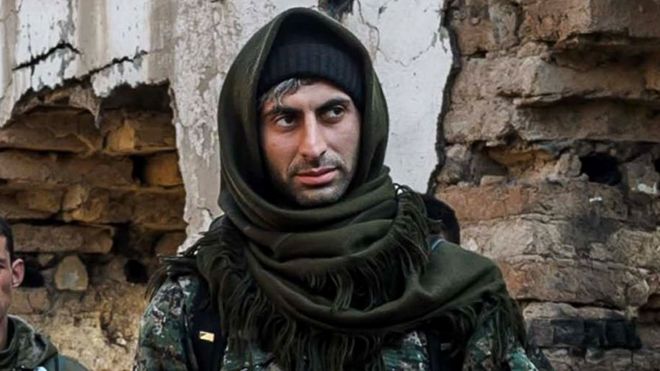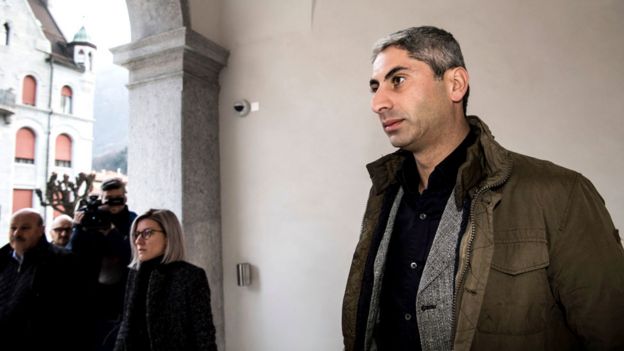Former Swiss Officer on Trial for Fighting IS


He
is charged with joining a foreign army and thus undermining Switzerland's
neutrality and security.
Mr
Cosar makes no attempt to hide his actions and remains proud of them.
"The
law forbids fighting for a foreign force," an army spokeswoman said.
"Who that force actually is, is irrelevant."
Mr
Cosar was born in Switzerland, and is a Swiss citizen. But his grandparents
have Syrian roots, and the Cosar family are members of the Syriac Christian
community.
Now
37, he says he originally travelled to Syria to work as a freelance journalist,
but when he saw that Islamist groups were advancing on Christian communities he
felt he had no choice but to defend them.
He
helped to found the Syriac Military Council, recruited for it, and readily
shared the military skills he had learned in the Swiss army, among them weapons
training and setting up checkpoints. At the height of the fighting, he was in
charge of more than 500 men.
When he returned to
Switzerland, he was arrested. Joining a foreign army without the explicit
permission of the government is forbidden under Switzerland's military penal
code.
There
are good historic reasons for this law: for centuries young Swiss men left
their then-poor country to fight abroad. Swiss mercenaries were recruited by
Napoleon, by Spain, the Netherlands, and even the British. But once Switzerland
established itself as a neutral country, its government decided it could be
awkward to have Swiss men fighting on multiple sides of Europe's wars, and
forbade the practice.
Nowadays,
the only legal Swiss troops abroad are the Swiss Papal Guard in Rome.
So now Mr Cosar is
sitting in a military court, being tried by the Swiss army's top lawyers. The
opening of the trial was greeted by a small demonstration of his friends and
family, carrying banners proclaiming "fighting Islamic State is not a
crime."
Mr
Cosar himself has suggested he deserves a medal, not a trial, because he was
"fighting terrorism" and protecting Christian minorities in Syria
from, he believes, certain death.
There are signs the
court may be lenient. The atmosphere inside the courtroom on the first day of
the trial is said to be relaxed, even humorous.
Mr
Cosar, who faces a maximum sentence of three years in prison, may be hoping the
judges will be persuaded that his motives were honourable, that he was
"fighting the good fight".
But
Switzerland's government does not want to send a signal that fighting in
foreign wars will be tolerated in any circumstances at all, however
"honourable".
Dozens
of Swiss citizens have travelled to Syria to fight for Islamic State, or to
marry the group's soldiers. A few are already back and in prison.
Others
are still in northern Syria, together with thousands of other foreign fighters,
detained in camps run by Syrian opposition groups. Like countries across
Europe, Switzerland is agonising over what to do about them.
Fighting
for a banned group like IS carries a much stiffer prison sentence than the one
facing Johan Cosar - up to 20 years. Switzerland's justice minister said this
week she would like Swiss foreign fighters to be tried "on the spot"
in Syria rather than back in Switzerland.
No-one,
however, seems quite sure how that would work.
The
Swiss government is due to announce its policy on foreign fighters next week.
Johan Cosar, meanwhile, can expect his verdict as early as Friday.
FROM bbc.com/news/world-europe-

No comments